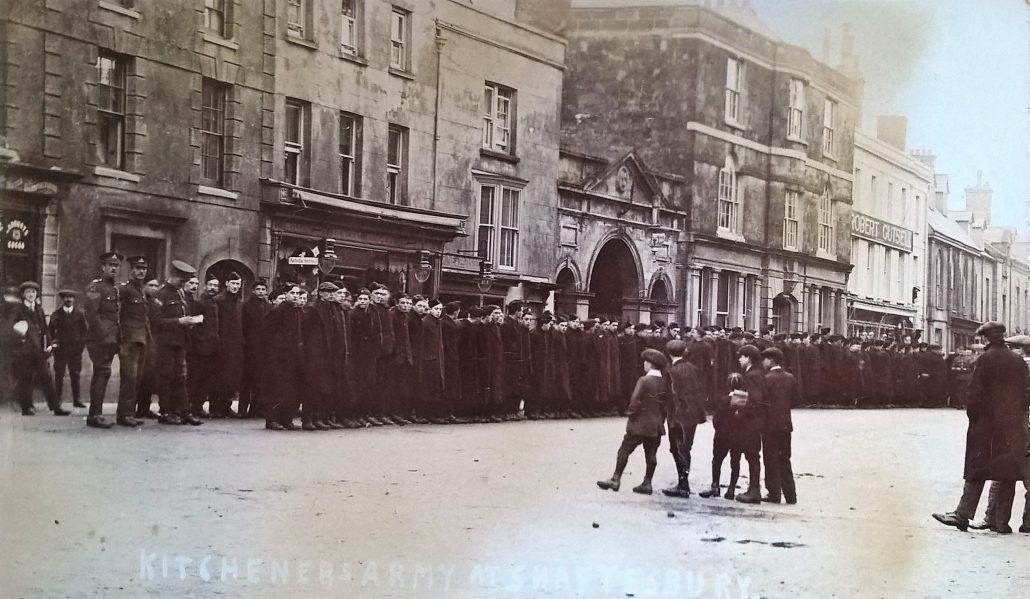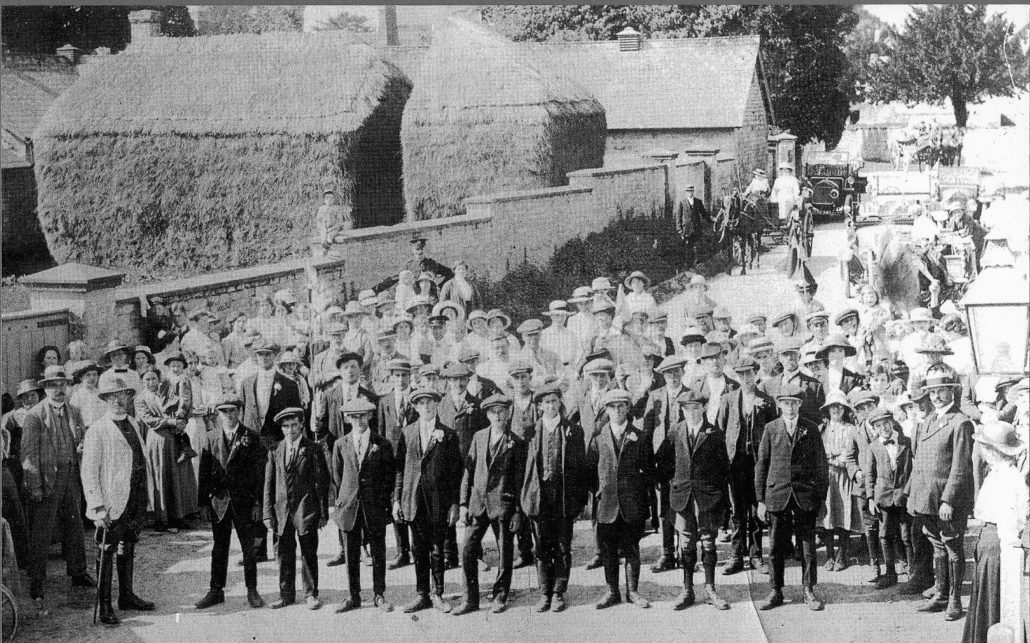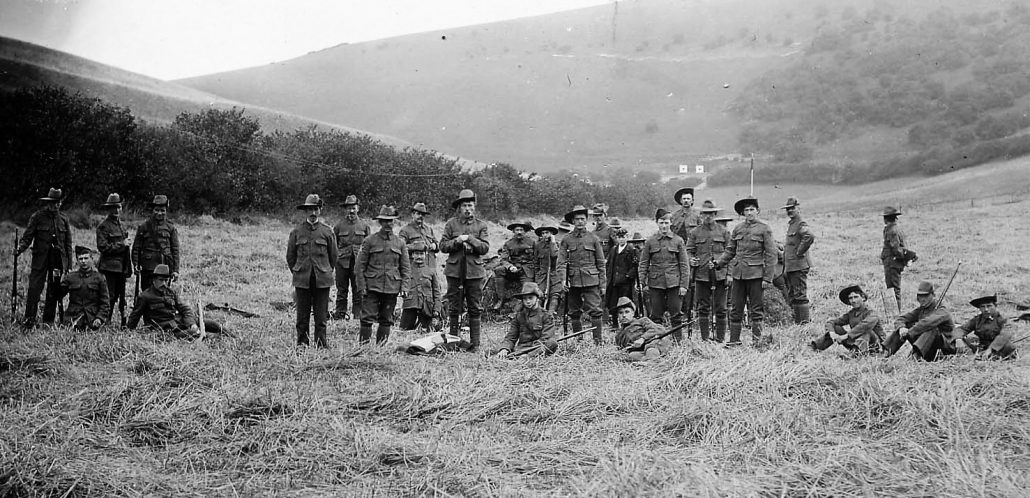Army Matters
1914
England declared war on August 4th and the instruction to mobilise came out from Downing Street at 4.45 pm. The first reservists were assembled outside The Keep, Dorchester by 5.30 pm the following day and by 7 am the following morning, a total of 175 men had joined up and were kitted out by 9 am. They marched off to Dorchester Railway Station, encouraged by crowds of well-wishers. The Stourhead estate made their cars available to take volunteer recruits to the station.
The Queen’s Own Dorset Yeomanry (QODY’s) assembled in Sherborne on August 8th.
On August 14th Charles Bathurst, MP for Wilton, and later Governor-General of New Zealand, sent a letter from the House of Commons to the Western Gazette, to be published immediately. It was a call to arms:
“Let every man between the ages of 19 and 35 (or if an old soldier, 45) realise and let his women folk who love him realise too- that there can be no nobler task than joining the Colours at the present time”
He reassured families left behind that they would be looked after with separation allowances and maintenance during the breadwinners’ absence, and asked farmers to release men after harvest, and keep their jobs open for them while they were serving in the forces.
Men from Shaftesbury and the local area responded quickly to the call. A description of one group’s departure on September 7th reads as follows:
On Monday morning a further detachment of men left Shaftesbury, 28 for Lord Kitchener’s Army, and 20 for the Territorials. At 7am the town crier announced the departure of the men and invited the townspeople to give them a hearty send-off. The Town Band assembled in the Commons at 9am and played patriotic music to a large audience and a hearty reception was accorded the volunteers as they lined up in front of the Grosvenor Hotel. Before their departure to the station, the Mayor addressed a few encouraging words to the men and presented each with a pipe, tobacco, and cigarettes, kindly subscribed for by a few townsmen. The men were then driven to the station, midst hearty cheers and the waving of flags and handkerchiefs, in motor cars lent by gentlemen of the town.”
Western Gazette, September 11th 1914
Calls for recruits continued for the 4th Dorset Battalion Territorials in 1914. In October in Fontmell Magna a special meeting was held with James Ismay of Iwerne Minster in the chair who exhorted more men to join up, in addition to the 23 men who had already left the village after signing up. Several new recruits gave in their names that evening.
The National Reserve held a shooting match between teams of twelve men at the Pensbury range (on the Pensbury estate situated on the Shaftesbury to Motcombe road) so they could practise their skills. In December the National Reserve, now numbering about 130 men, was inspected on Park Walk, and complimented on their appearance and drill by General Flint. Under the command of Mr Rupert Williams of Pensbury House, they then marched to Motcombe, accompanied by the Mounted Infantry Reserve, the Boy Scouts and the Town Band.
There were regular rifle club competitions in Shaftesbury and the villages before and throughout the war.
Up to 600 men from various regiments were billeted in Shaftesbury, and were the responsibility of Superintendent Hussey, the senior policeman in the town from 1913.
1915
In January men who were stationed in Shaftesbury were inspected and found competent in riding drill, gun drill, marching and physical drill.
In October, Sergeant Lemon, who lived in Hartgrove near Shaftesbury, was awarded the Distinguished Service Medal for gallant conduct and devotion to duty at the battle of Neuve Chapelle, France, in March 1915.
In the same month King George appealed for more recruits. Every month the sacrifices of those already fighting were described in weekly newspaper articles, often with photos, detailing the names and regiments of those who had recently been killed or wounded. The Stainer family in Cann was commended for its patriotism as their five sons were all serving abroad, Austin, Ernest, Hubert, Harry and William.



